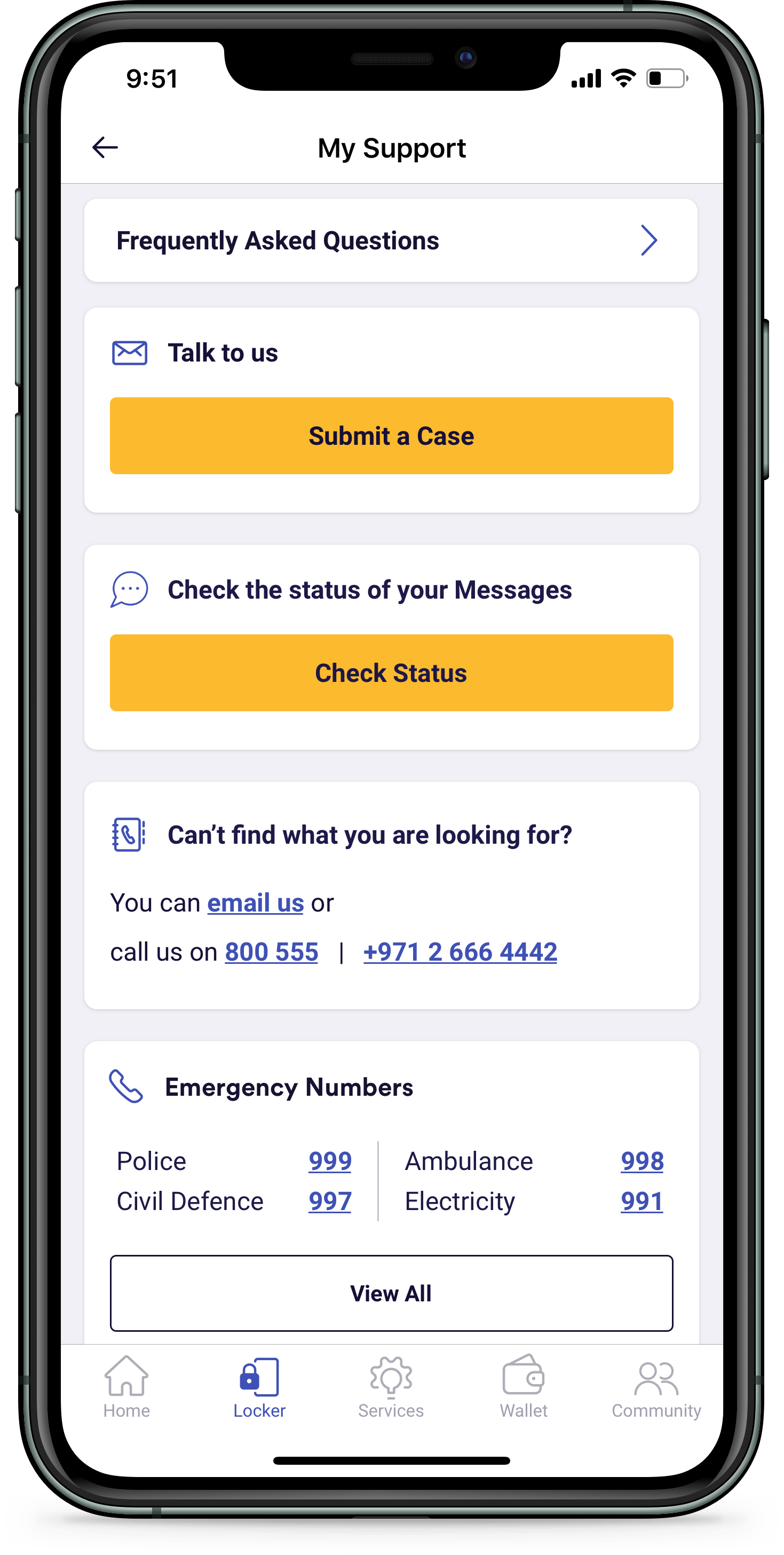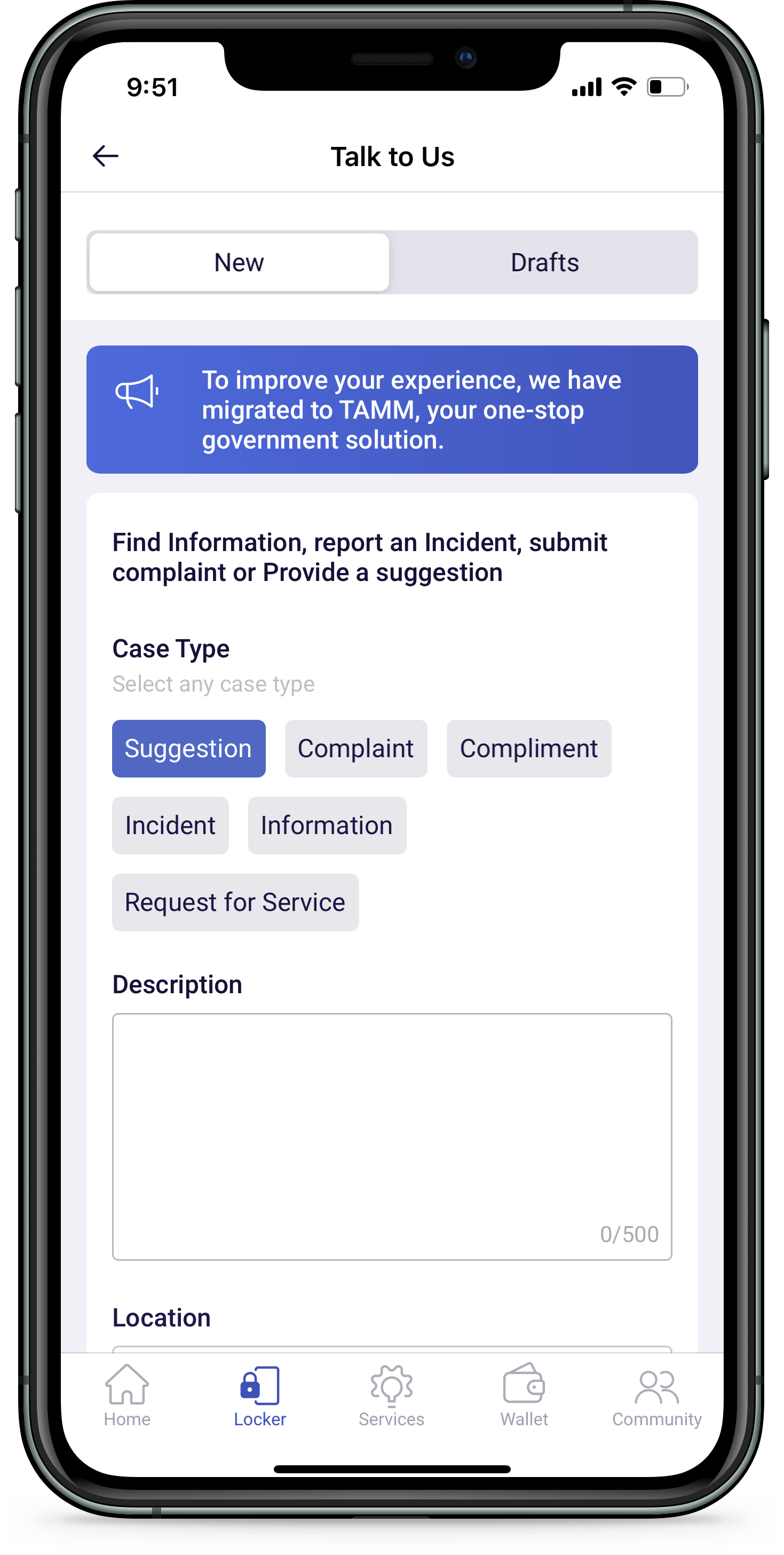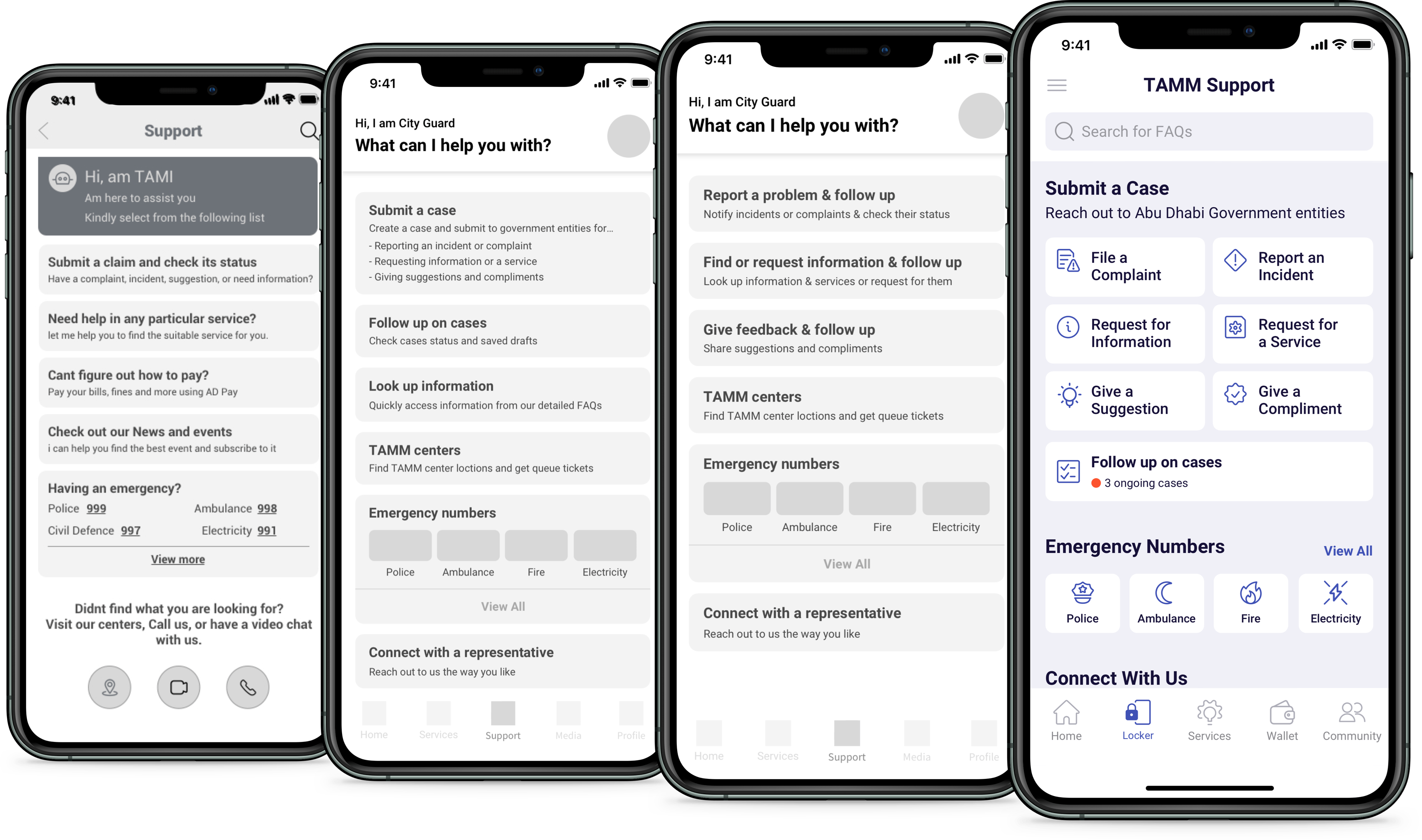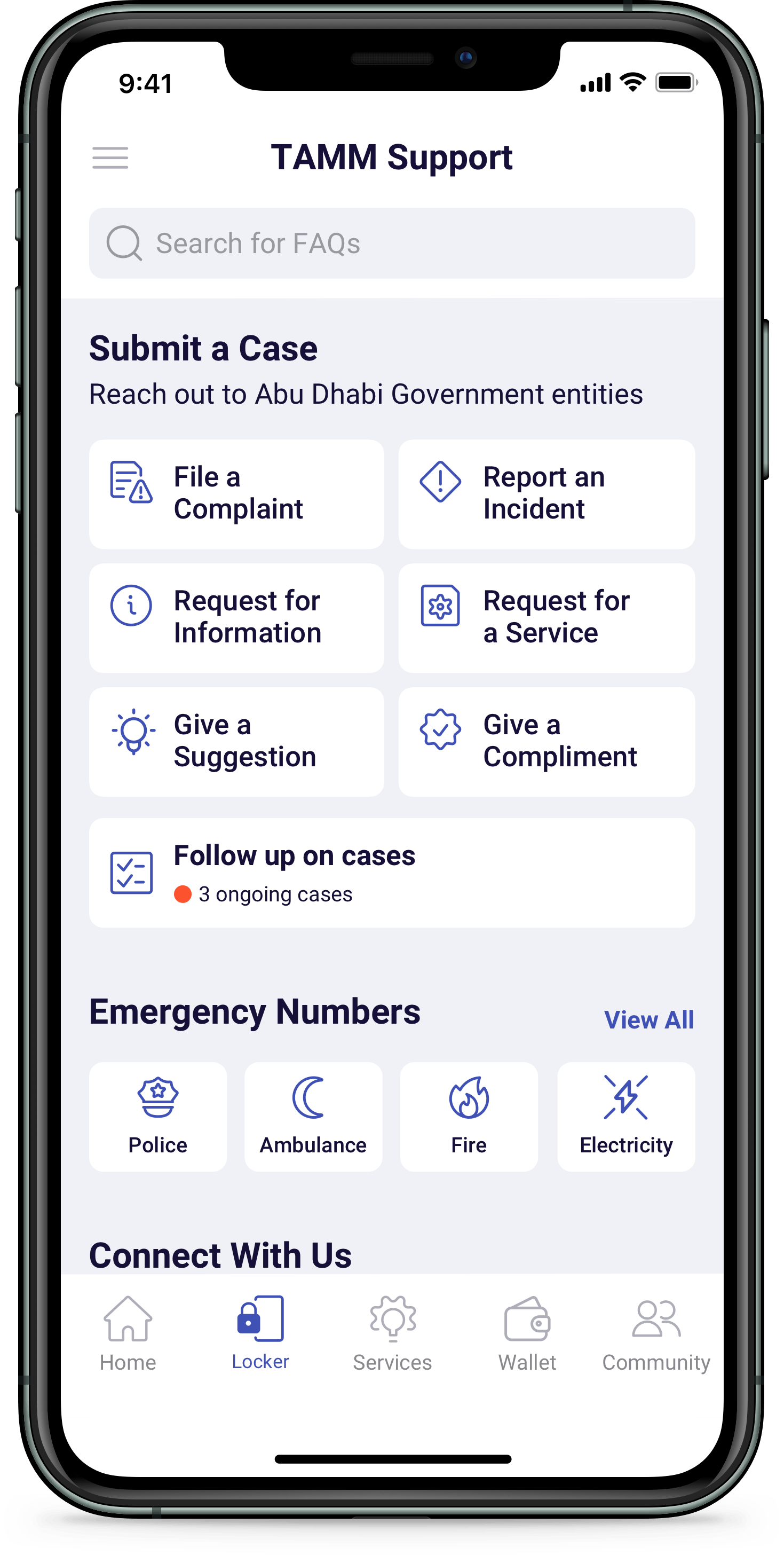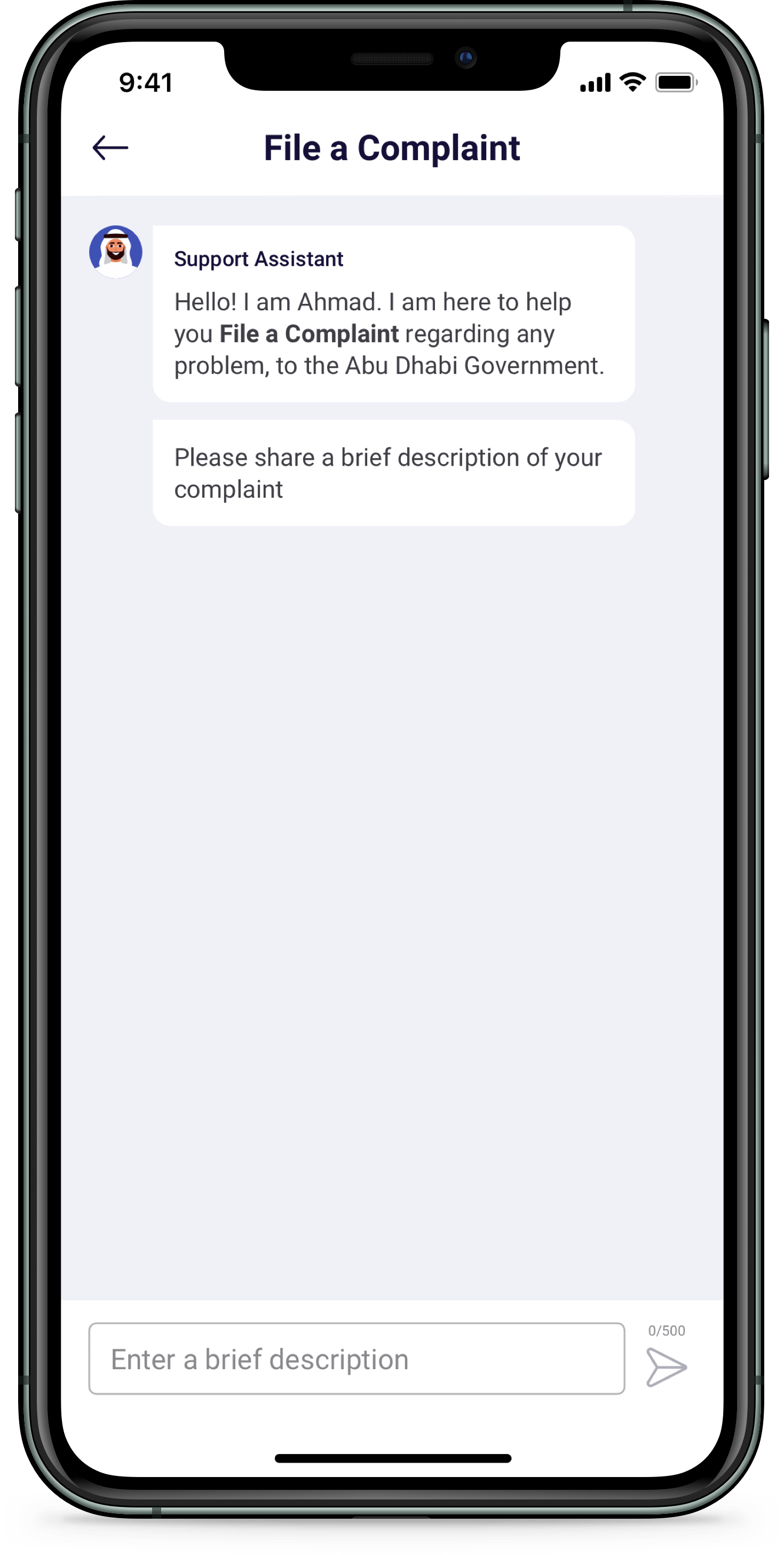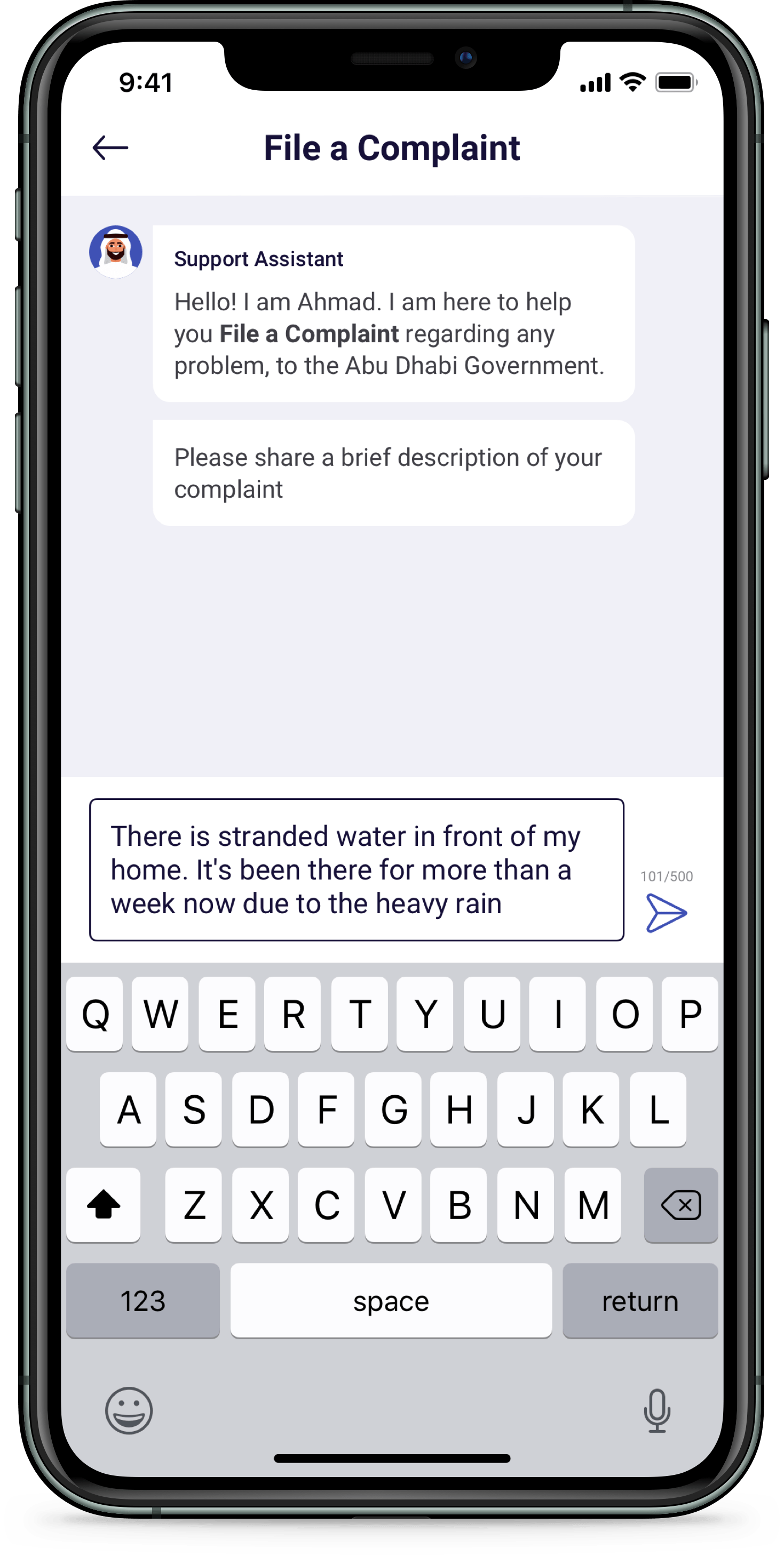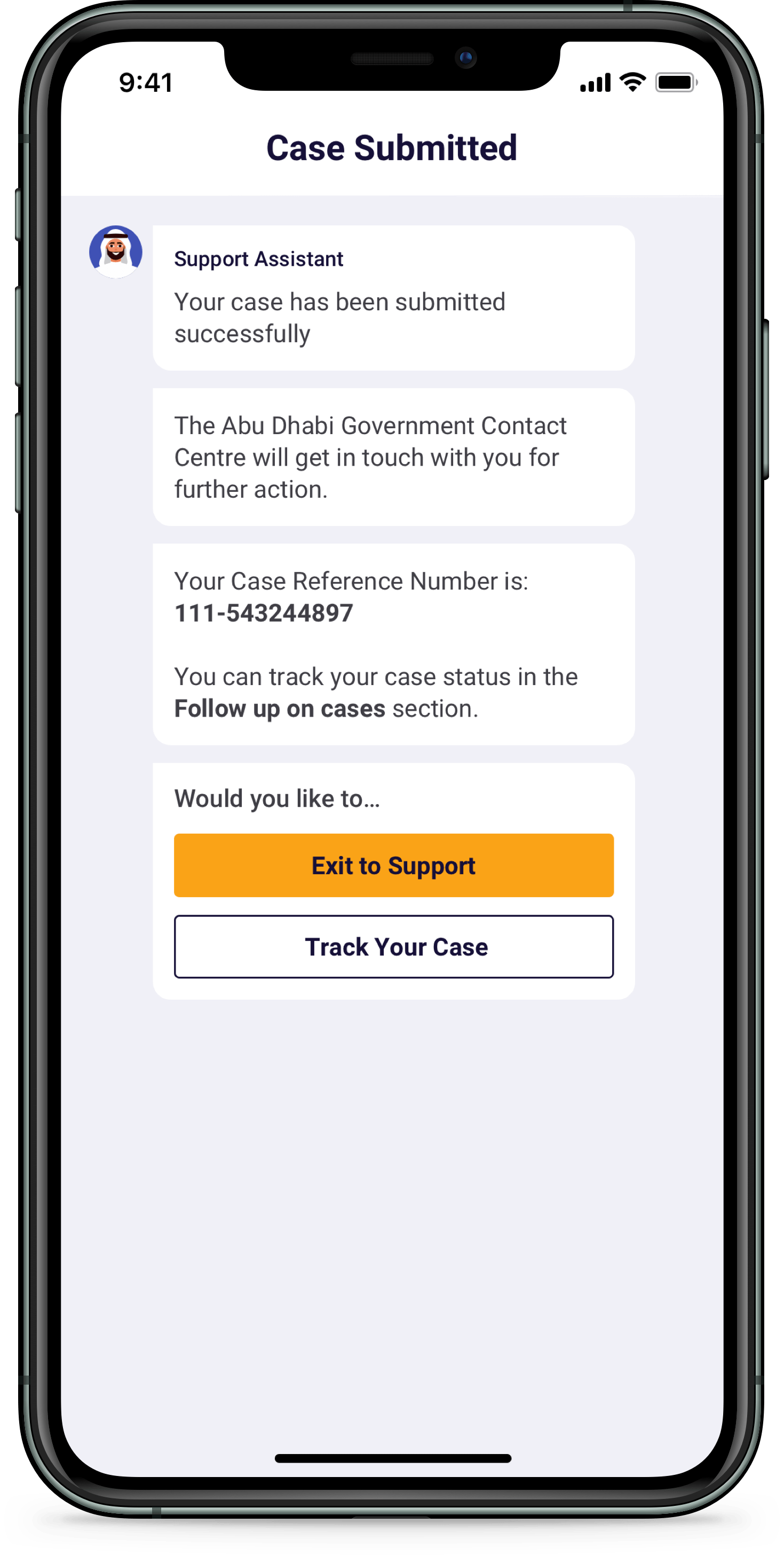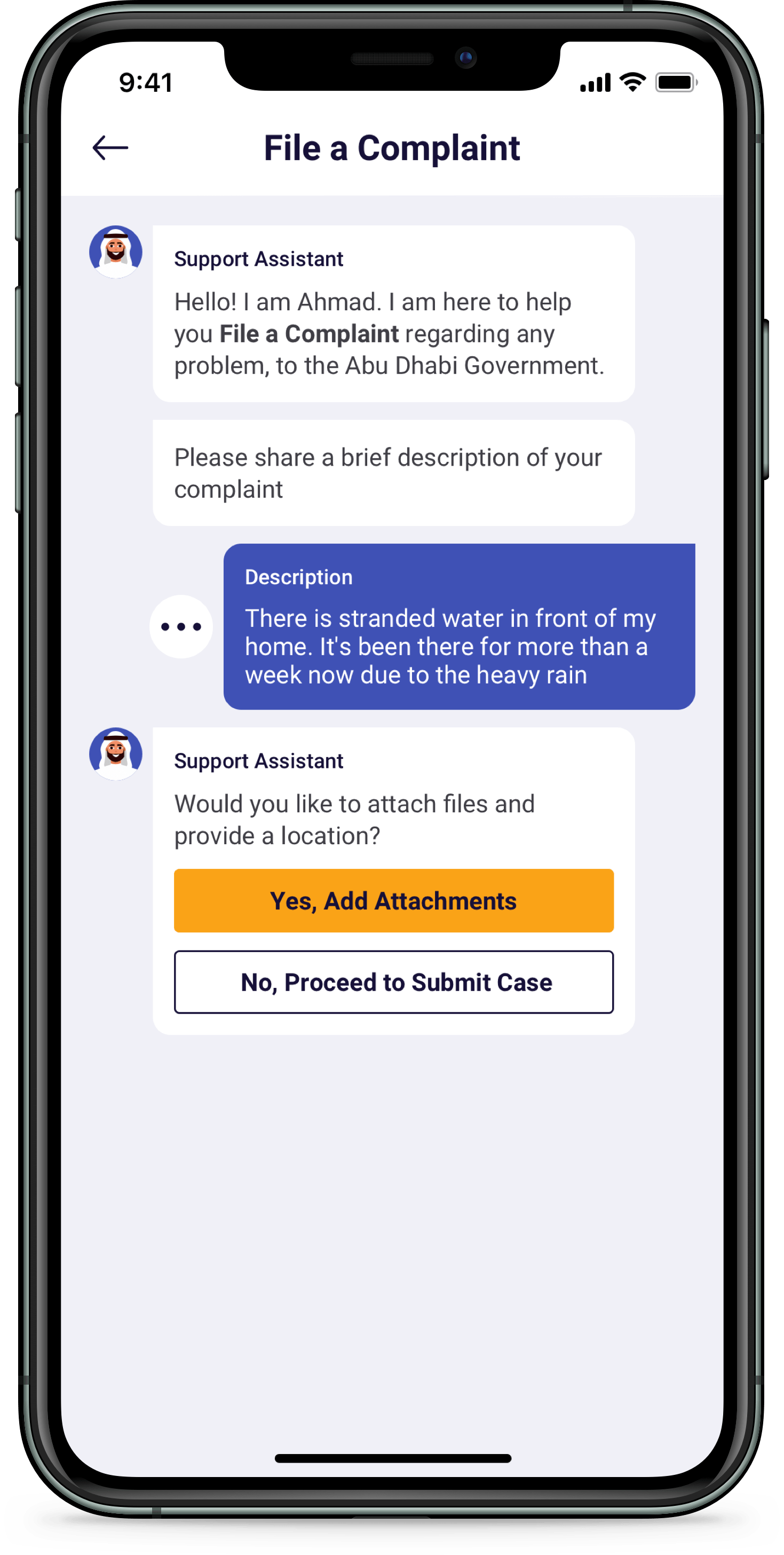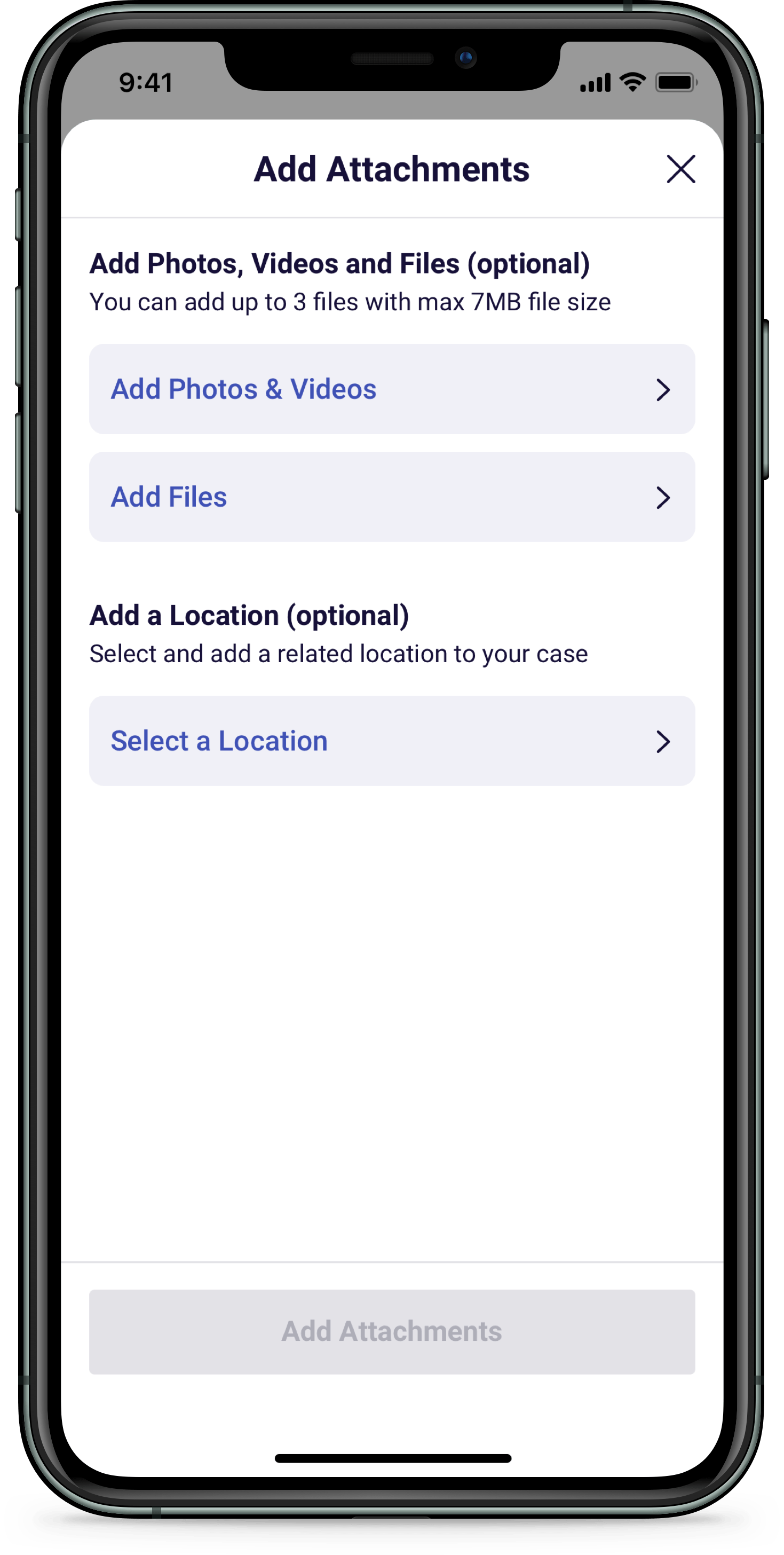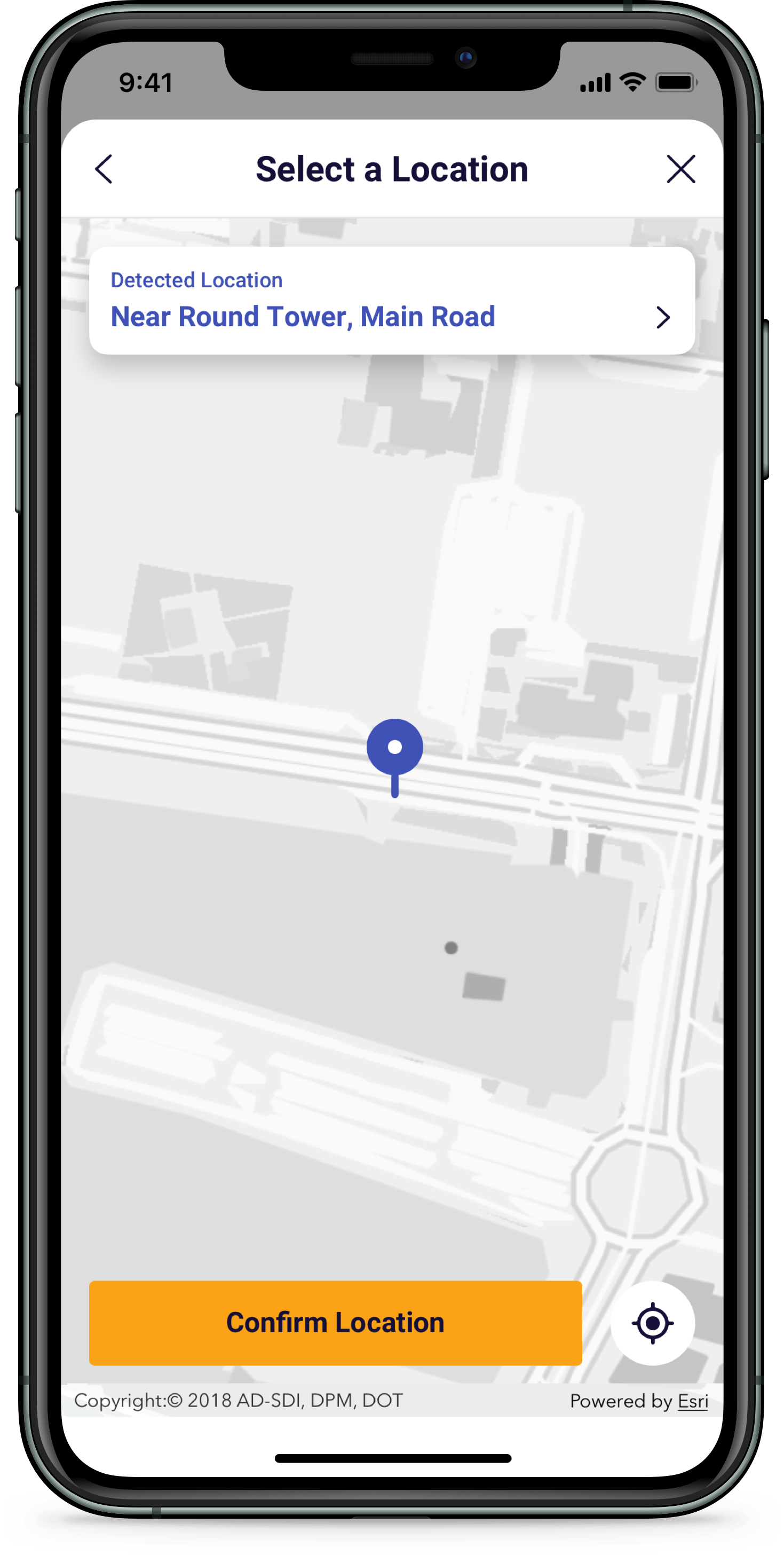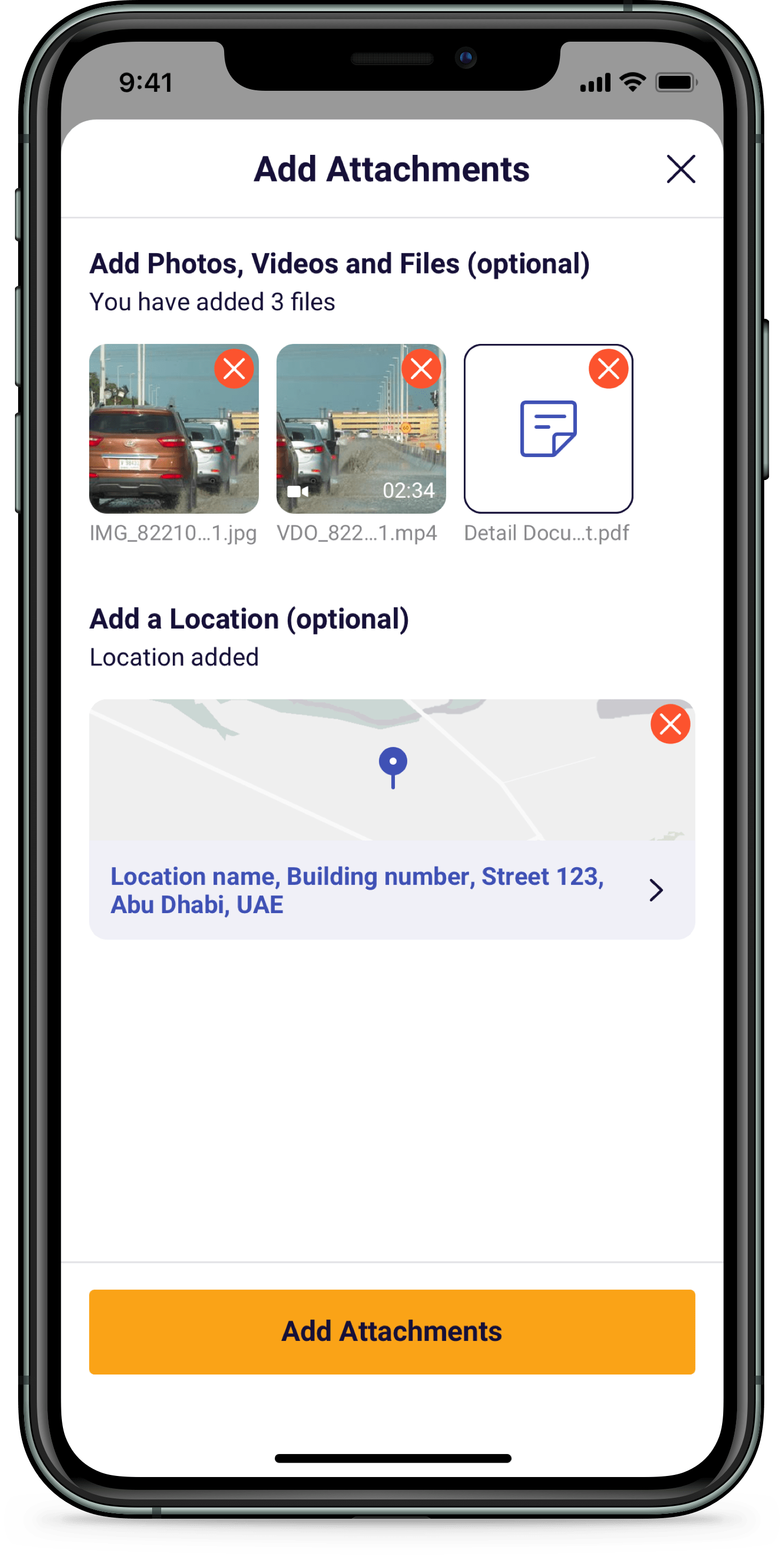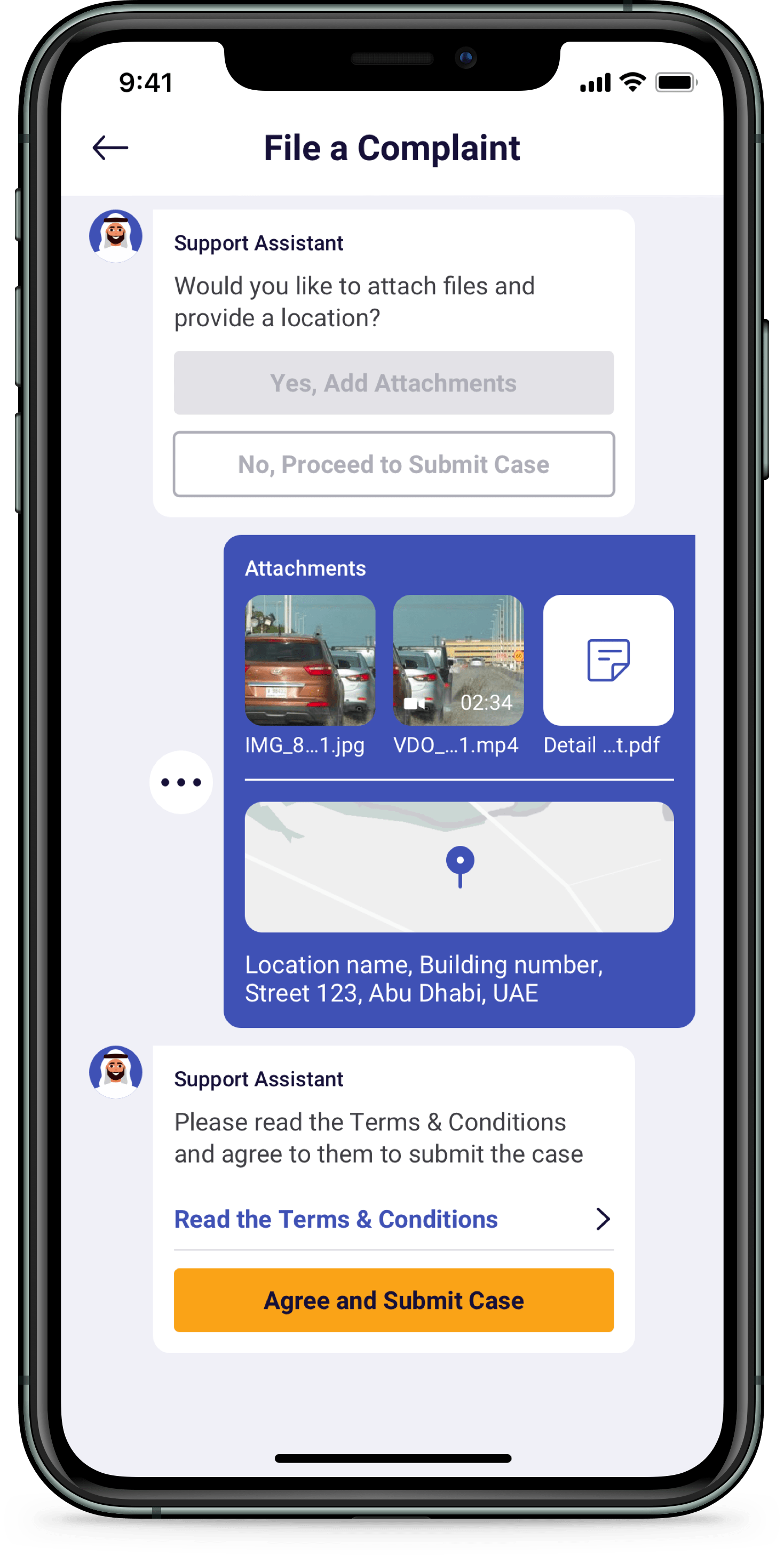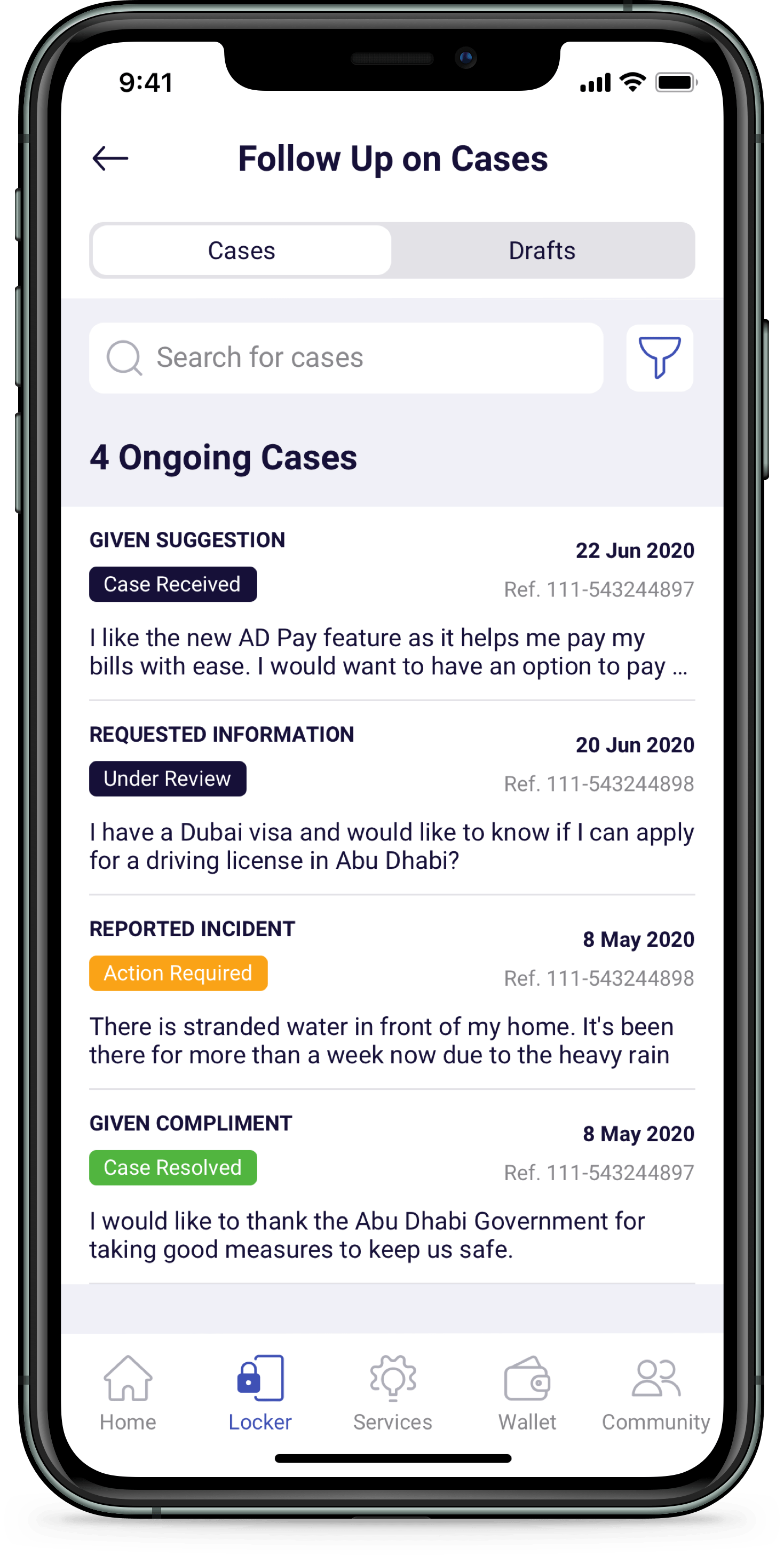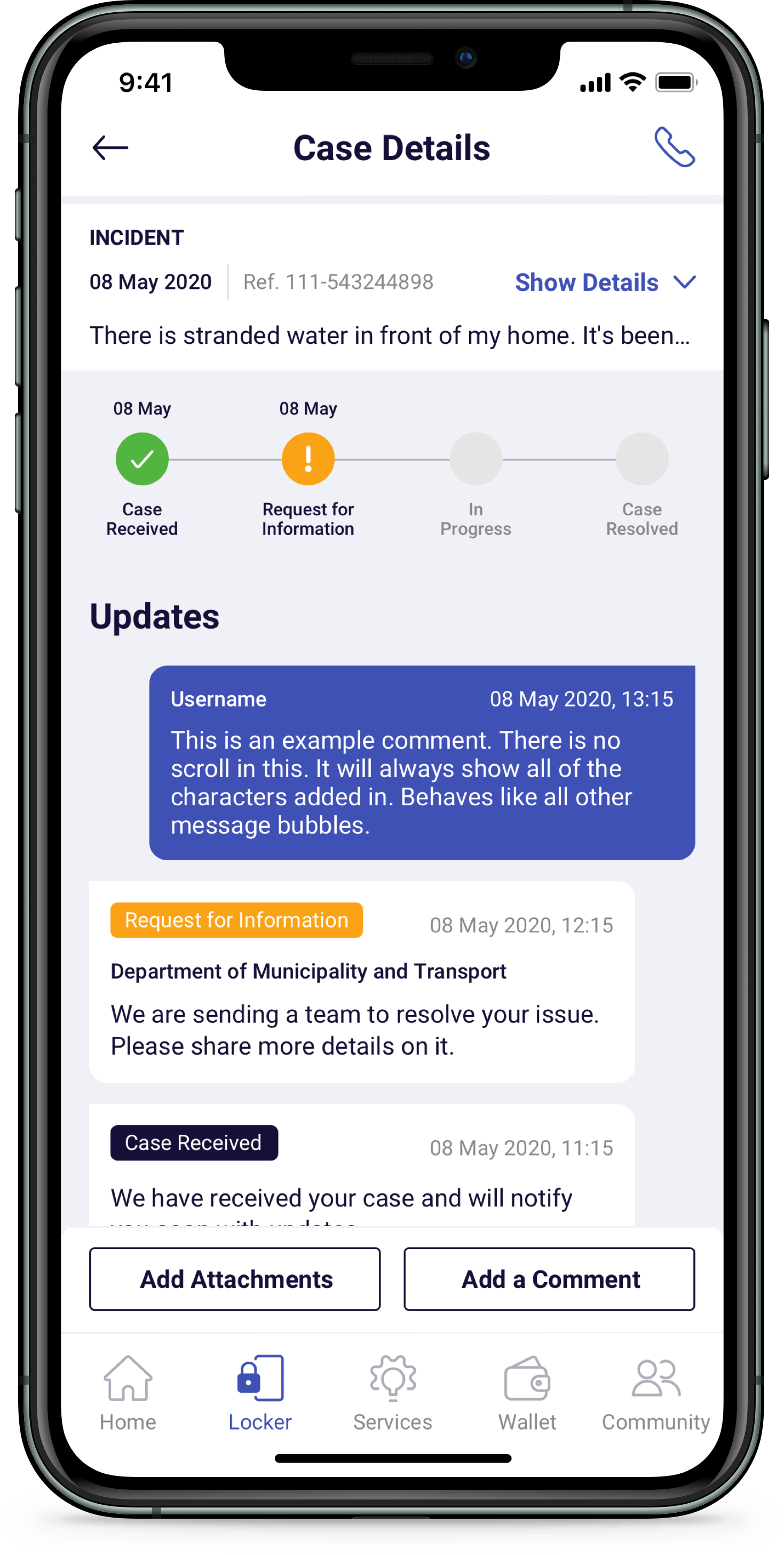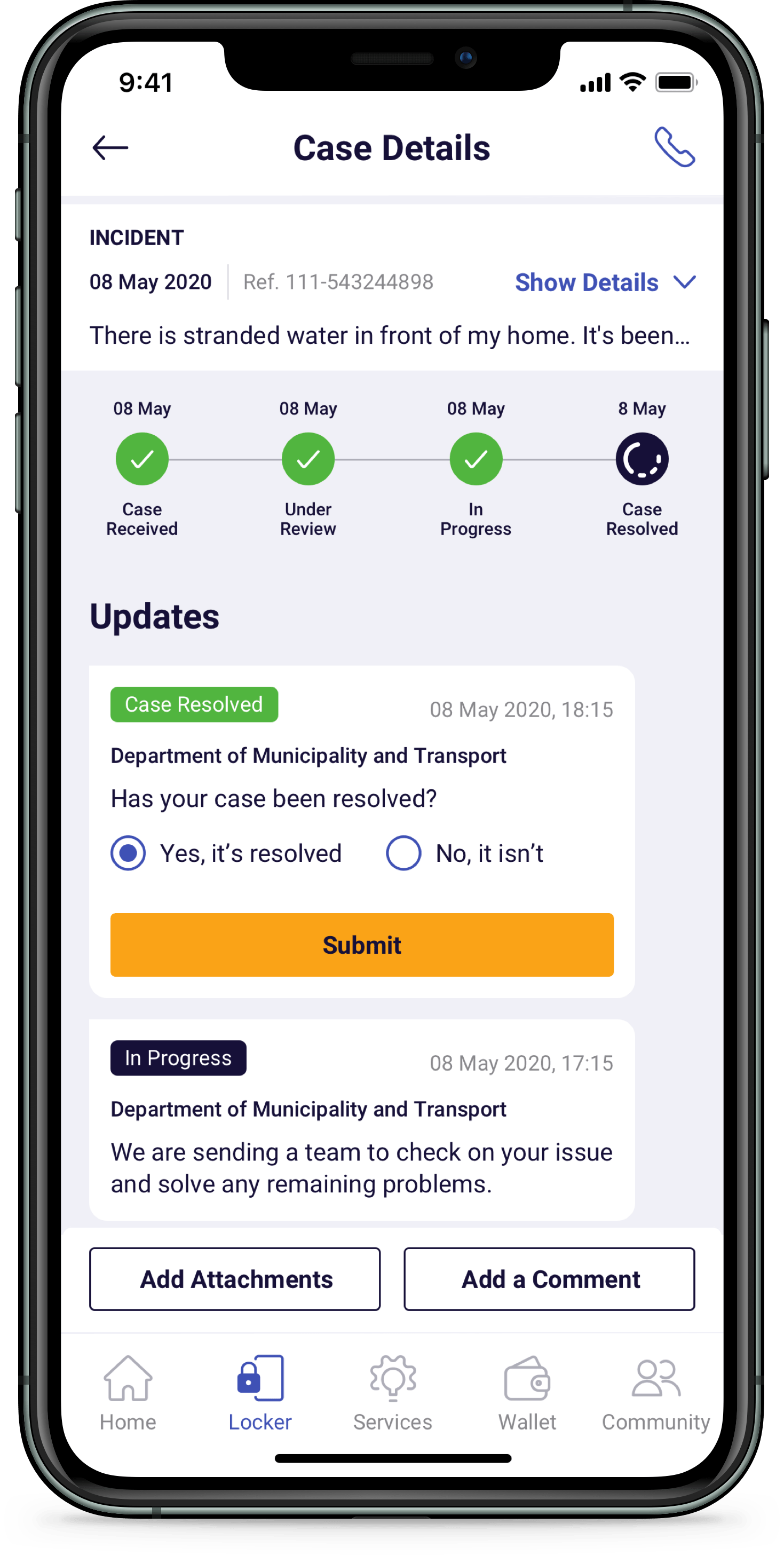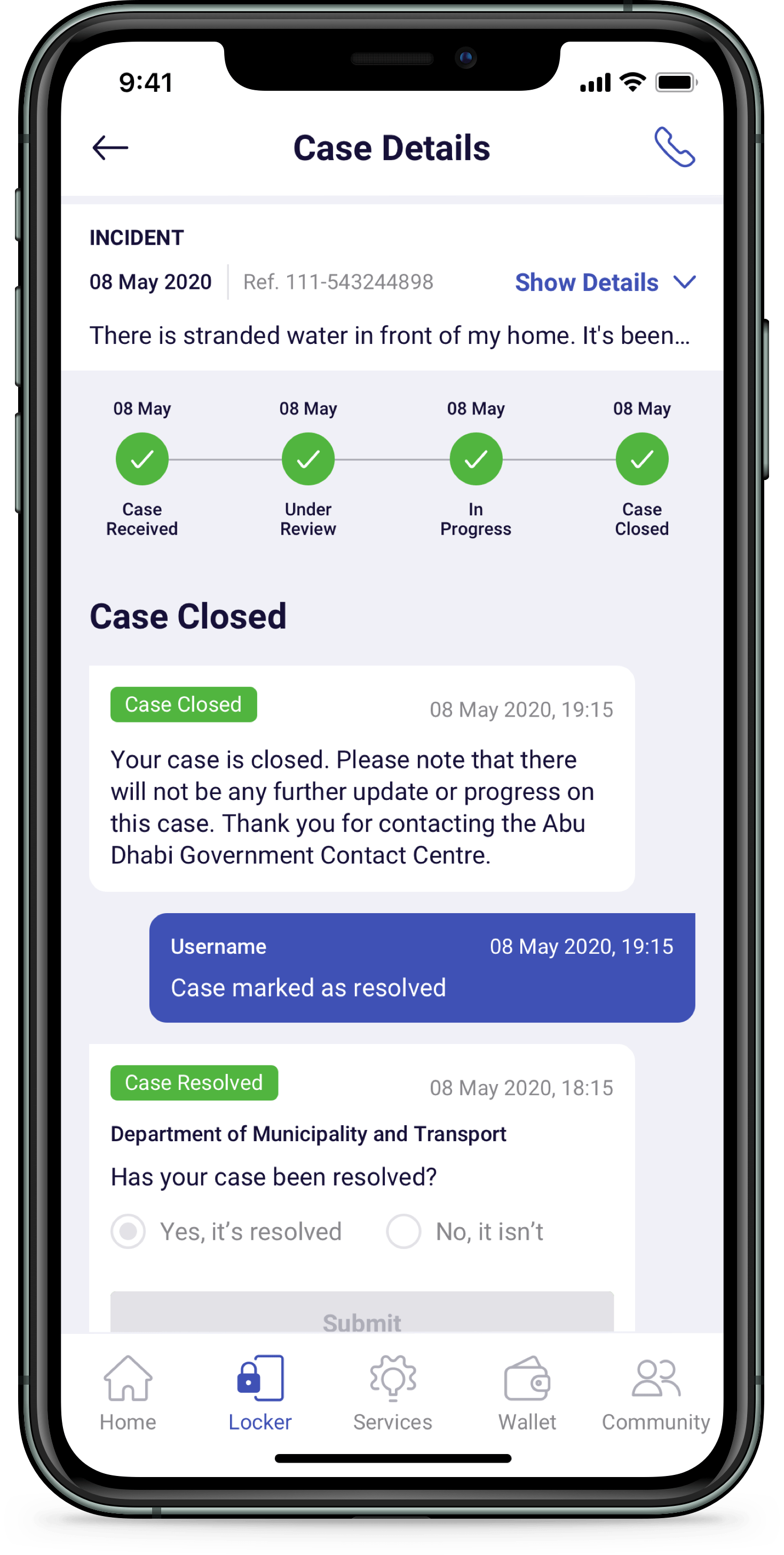End-to-end Product Design • Research | 4 min read
UX Transformation Before the AI Boom
Rethinking Citizen-Government Engagement
Client
TAMM – Abu Dhabi
Role
Lead UX Designer
Overview
The Abu Dhabi Government faced a critical challenge with their TAMM mobile app’s support feature, where only 8% of cases were successfully submitted through the app while a staggering 86% relied on costly helpline and email channels. Our team embarked on a comprehensive six-week UX transformation process, redesigning the citizen-government engagement experience from the ground up with strategic user-centered methodologies.
The transformation yielded remarkable results that demonstrated the power of thoughtful UX design even without advanced AI technologies:
• 313% increase in successful case submissions through the app
• 71% reduction in helpline and email cases
• Reusable design patterns for accelerated digital initiatives
• Reduced development time through standardized interaction models
This initiative ultimately served as the foundation for today’s AI-driven TAMM super app, proving that solid UX fundamentals are essential prerequisites for successful AI implementation.
The Challenge
Bridging the Digital Divide
TAMM mobile app’s support feature was designed to enable residents to report problems, seek information, and share feedback with government entities. However, the support feature was failing its primary purpose.
Costly Concerns
The data painted a concerning picture:
• Only 8% of cases were successfully submitted through the app’s support feature
• 6% failed during submission attempts
• The vast majority—86% of cases—came through traditional channels:
– 64% via helpline calls
– 22% via emails
Design Challenges
As the lead designer for this initiative, my initial analysis uncovered multiple key areas for enhancement:
• Findability Challenges
The support feature was buried in the third layer of the information architecture with weak information scent, making it difficult for users to discover.
• Taxonomy Problems
The support landing page used confusing terminology like “Talk to Us”, “Check status of Your Messages” and “Can’t find what you are looking for?”—creating uncertainty about the feature’s purpose.
• Visual Design Flaws
– The support landing page had a confusing hierarchy and prioritization of interface elements
– The case submission form lacked a clear indication of the required fields
Success Metrics
The business objectives were clear:
• Increase successful case submissions through the app
• Reduce costly helpline and email cases
• Complete the redesign within six weeks
Our challenge was to completely reimagine the support experience within this tight timeframe.
The Approach
Discovery & Research
We analyzed six months of support center data and conducted a benchmarking study across 17 apps from different industries, identifying successful patterns in support features and understanding user pain points.
Ideation & Design
Our team generated 59 ideas through creative workshops, focusing on four key concepts:
• Chatbot with multi-language, multi-modal interaction
• Conversational UI with guided workflows
• Enhanced human interaction options
• Tailored experiences based on user intent
Testing & Validation
We conducted Formative Usability Testing using 4 distinct prototypes with 20 Abu Dhabi residents, and with the final version, we achieved a 92% overall task success rate compared to 60-80% for other versions.
Want to dive deeper into the process?
I’d be happy to walk you through our research findings and design decisions that shaped this transformative solution.
The Solution
Reimagining Citizen-Government Engagement
The winning design (Version 4) completely transformed the support experience through several key innovations:
Intuitive Support Landing Page
The redesigned landing page brought the support feature to the forefront with clear, action-oriented options for filing complaints, checking status, and finding information.
Guided Case Submission
The new submission flow guided users step-by-step through the process, with clear indication of required fields and contextual help at each stage.
Rich Media Support
Users could now attach photos, videos, and location data to their cases, providing government entities with comprehensive information for faster resolution.
Transparent Case Tracking
The redesigned case tracking interface provided clear status updates, notification of changes, the ability to add comments or attachments to existing cases, and provide final comments on case resolution, creating accountability and trust in the process.
The Impact
Transforming Government Service Delivery
The implementation of our redesigned support feature delivered extraordinary results across multiple dimensions.
Immediate Performance Gains
313% Increase in Interaction
From 300 to 1,240 successful monthly case submissions through the app within the first quarter
71% Reduced Calls and Emails
From 86% to 15% reduction in cases submitted through email and phone
Operational Efficiencies
Digital submissions reduced the average handling time compared to phone and email
Cost Savings
Each digitally submitted and managed case cost less to process than traditional channels
Strategic Value Creation
Experience Blueprint
Established a base blueprint for conversational experiences for government services
Design Acceleration
Created reusable design patterns that accelerated subsequent digital initiatives
Innovation Leadership
Positioned the government as an innovator in citizen experience design
Development Efficiency
Reduced development time for future services through standardized interaction models
These metrics represent more than just improved efficiency—they signify a fundamental shift in how citizens engage with their government. By focusing on fundamental user needs and pain points, we created a solution that dramatically improved service delivery while reducing operational costs.
Bridging the Future
From Conversational UX to AI Innovation
This project laid the critical groundwork for the AI-driven TAMM super app that serves Abu Dhabi today. By focusing on natural human interaction patterns rather than technological constraints, we created interfaces that remained relevant and effective even as underlying technologies evolved. The conversational UI patterns and guided workflows we designed became the blueprint for how the AI assistant would later interact with citizens. This “designing for tomorrow’s technology with today’s tools” approach demonstrates how thoughtful UX design can create experiences that not only solve immediate problems but also prepare both users and systems for future innovation.
Let’s build your AI-driven
transformation together
More Case Studies
Supercharged Design Delivery
How a Design System Redefined Efficiency
Data Beats Deadlock
Solving a Week-Long Design Dispute in 1 hour
Designing the Design Process
DesignOps for a Multi-Brand Ecosystem
Designing Delight
The Retail App That Topped Charts


